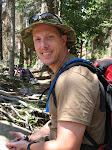Monday & Tuesday, June 9-10.
Monday was a quiet day. We started our work at the clinic, but saw relatively few patients--13, I I think. I did some basic triage--blood pressure, pulse, and some basic health questions that outlined what the visitors wanted the doctor to address. The most interesting thing that happened was listening to the irregular heartbeat of a woman who came to the clinic. "Lub dub, lub dub.........dub, lub dub, lub............dub, lub dub, etc."
We continued to sort some medicines, and organized everything for our trip to Stei on Tuesday. In the afternoon, I went to the orphanage, Casa Josef, that is run by REMM. There I helped dismantle some of the play equipment that had become unsafe for the children to play on. The wood, over four year's time had rotted and become infested with termites. After that, we played with the girls in the orphanage for a bit and then walked home.
All of the girls who stay at Casa Josef are of pre-school/kindergarten age and are of Gypsy/Roma heritage. I asked Anca, Peter and Ana Lucaciu's daughter, who is staying in Romania this summer with her son, Lucas, if these children would be taught or retain some of their heritage/language. In the U.S., we often hear that discussion in regard to bi-racial adoptions in the U.S. She replied that there really wasn't anything being done to make links with girls' Gypsy heritage. It wasn't considered to be important.
I struggle with that a bit. I understand that the Gypsy/Roma people have a reputation as being beggars, dishonest, and living on the good graces or misfortunes of others. Casa Josef exists because of the high number of abandoned children that come from the Roma people. On the other hand, as a Christian, I wonder how faith in Christ could transform hearts to him and redeem the good parts of their culture that I observed--colorful dress, beautiful language and music, among other things. I guess the most important thing is that these girls are safe, well-adjusted, and loved. I only wonder how many of them will seek their "roots" when they grow older, and how difficult it might be for them to find that they are looking for.
After supper, the evening was spent watching Romania play France in the Euro Cup Soccer/Football tournament. The match ended in a tie. I loved how the whole town seemed quiet and still, but when the home team scored a goal, voices and cheers echoed above fences and walls.
As for Tuesday, we traveled about 40 minutes to a small town called Stei. If I were to guess, Stei was about the size of Beius. We saw 60+ people. I worked triage once again. One of our translators for the day was Mihai (Mike) Inasel. He is 16, and is fluent in English, speaking with little to no discernible accent.
Mike is a climbing/caving enthusiast. Romania is renowned for its miles and miles of caves. Seeing my backpack and some of the gear I had along, he saw that I liked being outdoors as well. He peppered me with all types of questions about hiking and climbing. I don't have a lot of expertise, but we had a good time talking. He noticed my Nalgene bottle in my pack. He commented that he really wanted one, but that they were impossible to buy in Romania. I offered, but he wouldn't take mine. I will make arrangements for him to have one.
We had a fantastic meal of paprika/BBQ chicken, salad, mashed potatoes, and a treat that I loved, "placinta cu branza." It was a croissant type pastry with a mildly salty cheese woven into the pastry. Wow. I think I ate four.
During a break, Mike walked me through the town and showed me the headquarters of the Mountain Rescue Team that Mike belonged to. He is assisting this team, belongs to a climbing/caving club, and is training to be certified. I enjoyed getting to know Mike a little.
It was a good, busy day. Sleep will come easy tonight.

No comments:
Post a Comment